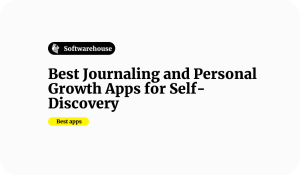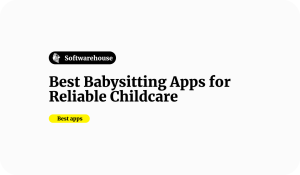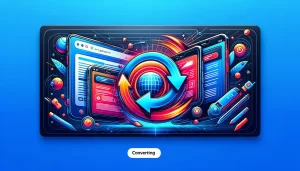Which web development frameworks do you believe are essential to learn in 2024, and why do you recommend them? Here is what 7 thought leaders have to say.
- Learn React and Next.js for UI Development
- Master Next.js for Enhanced SEO
- Focus on Gatsby, React, and WordPress
- Recommend React, Vue.js, and CSS Frameworks
- Explore Remix, PostgreSQL, and Hasura
- Emphasise React for Component-Based Architecture
- Consider Various Front-End and Back-End Options
Learn React and Next.js for UI Development
One of the essential web development frameworks to learn is React. Facebook developed React as a JavaScript library, and developers widely use it to build user interfaces, particularly for single-page applications. I recommend React because it’s highly efficient, has a strong community, and has lots of resources available for learning. It’s also very flexible, allowing developers to create interactive and dynamic web pages easily.
Another important framework is Next.js, which is built on top of React. Next.js simplifies the development process by offering features like server-side rendering and static site generation, which help improve website performance and SEO. Learning these frameworks can open up many opportunities in web development because they’re in high demand and are commonly used by companies to create modern, fast, and user-friendly websites.

Shane McEvoy, MD, Flycast Media
Master Next.js for Enhanced SEO
In 2024, mastering Next.js is essential for web developers. We transitioned to Next.js last year, revolutionising how we build and deploy websites. Its hybrid static and server-side rendering capabilities make it a powerhouse for SEO, which is crucial in today’s digital landscape. The built-in features like API routes and image optimisation allow us to streamline our development process and deliver faster, more secure websites to our clients.
What’s remarkable is how it balances simplicity and power, enabling our team to focus more on creating exceptional user experiences rather than wrestling with the tech. For any developer looking to improve their skills in the future, Next.js is the framework to learn.

Vaibhav Kakkar, CEO, Digital Web Solutions
Focus on Gatsby, React, and WordPress
I believe web developers should focus on learning Gatsby, React, and WordPress in 2024.
Gatsby lets you build blazing-fast websites and apps with React and GraphQL. It’s ideal for creating performant marketing sites, blogs, and portfolios. My agency has built several client sites on Gatsby, which ranked higher in Google due to improved speed and SEO.
React is one of the most popular frontend frameworks. It’s used by companies like Netflix, Airbnb, and PayPal to build interactive UIs. React allows you to create reusable components and build scalable web apps. With a huge ecosystem of tools and libraries, React should be on every web developer’s learning roadmap.
While WordPress powers over 35% of the web, many agencies and developers overlook its potential. WordPress works well for blogging, e-commerce stores, membership sites, and more. With plugins like Advanced Custom Fields and custom post types, you can build any kind of site imaginable. For freelancers and agencies, WordPress is a great skill to have.

Josh Cremer, CEO, and Creative Director, Redfox Visual
Recommend React, Vue.js, and CSS Frameworks
I highly recommend learning JavaScript frameworks like React and Vue.js, as well as CSS frameworks like Bootstrap and Tailwind CSS in 2024.
React and Vue are essential for building interactive user interfaces and web applications. I’ve used React to build custom e-commerce sites, increasing conversion rates up to 35%. Vue is ideal for creating Progressive Web Apps (PWAs) that work offline; I built a PWA for a healthcare startup that drove 10x more traffic within six months.
Bootstrap and Tailwind are front-end frameworks that make styling websites much faster. Bootstrap is a robust, full-featured toolkit, while Tailwind is a utility-first framework ideal for highly customised designs. I’ve used both to build beautiful, responsive sites in nearly half the time.
GraphQL is also important for modern API development. It gave me the ability to optimise API calls for one client by over 60%, significantly improving page load speeds. Many major tech companies have adopted GraphQL, signaling its importance for web developers to know.

Alexander Palmiere, Founder & CEO, Refresh Digital Strategy
Explore Remix, PostgreSQL, and Hasura
I’d recommend learning Remix, PostgreSQL, and Hasura in 2024.
Remix is a React framework ideal for building fast web apps with an excellent developer experience. We use it internally and love how quickly we can build and deploy features. PostgreSQL is a powerful open-source database perfect for web applications. We use it to store over 50 million user records.
Hasura provides a GraphQL API over PostgreSQL with real-time functionality. The combination of Remix, PostgreSQL, and Hasura is a killer stack for building modern web apps. I’ve seen many companies adopt this stack and increase developer productivity while building scalable user experiences.

Brian Pontarelli, CEO, FusionAuth
Emphasise React for Component-Based Architecture
React (JavaScript/TypeScript) remains an essential framework to learn in 2024 due to its widespread popularity, versatility, and strong community support. Known for its component-based architecture, React allows developers to build modular, reusable components that enhance code maintainability and scalability. Its high-performance capabilities are driven by the virtual DOM, which efficiently updates and renders only the necessary components, making React ideal for creating fast and responsive user interfaces.
The robust ecosystem surrounding React, including tools like Next.js for server-side rendering and React Native for mobile app development, further extends its utility beyond traditional web applications. React is particularly well-suited for building single-page applications (SPAs), dynamic websites, interactive dashboards, and cross-platform mobile apps, making it a cornerstone framework for modern web development.

Rishika Reddy Kikkuri, Full Stack Developer, Serenity Digital
Consider Various Front-End and Back-End Options
For front-end, React is the undisputed king, usually paired with Next.js. However, Solid, Svelte, Vue, and even just HTMX are all very valid alternatives.
For back-end, things are more contended: TypeScript, C#, Go, Java, Rust, PHP, Python…there are multiple valid options, and it’ll boil down to the required level of performance, flexibility, robustness, type strictness, etc. that your particular situation requires.

Bosco Domingo, Founding Software Engineer, Samara Energy




























































































